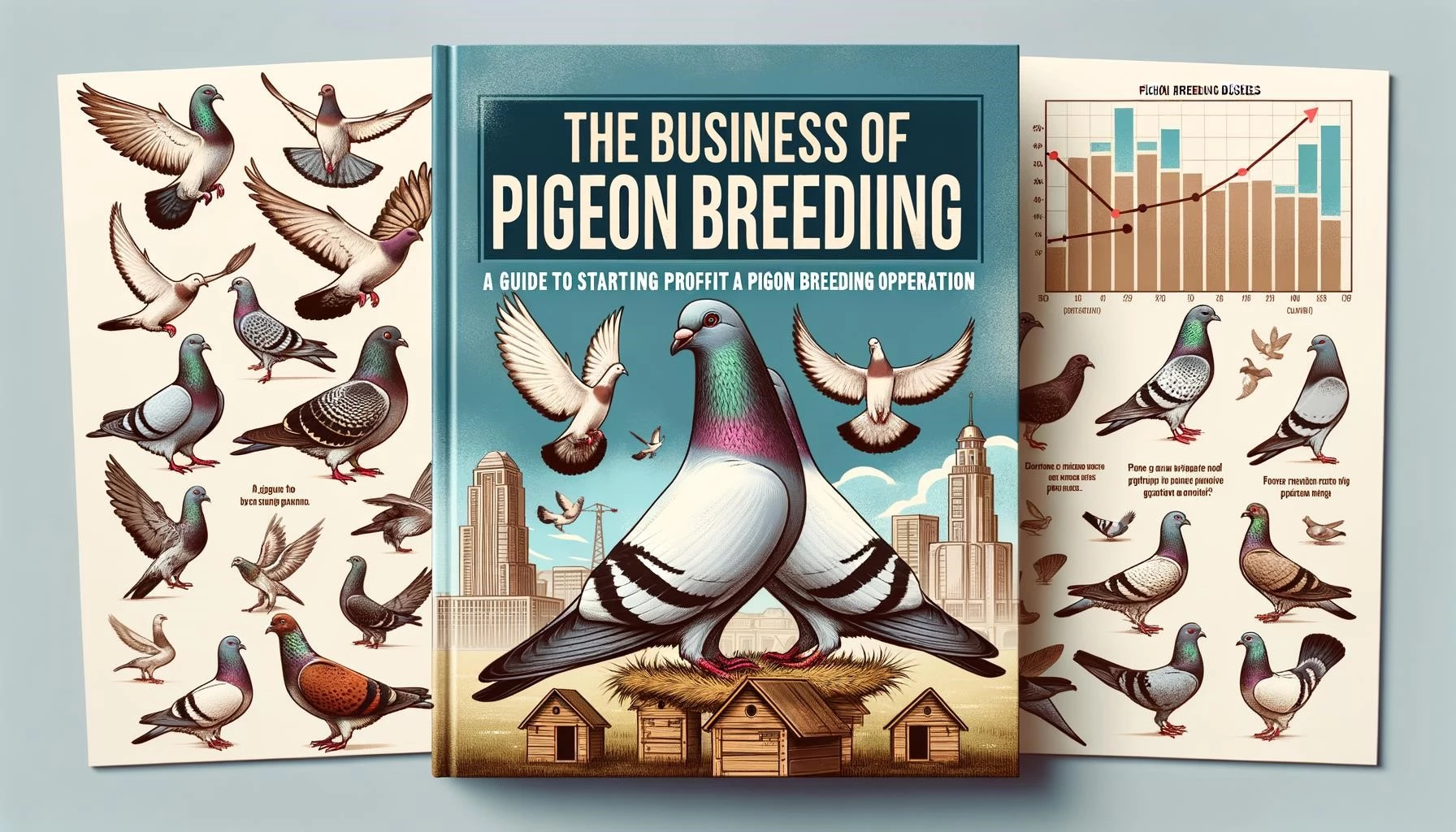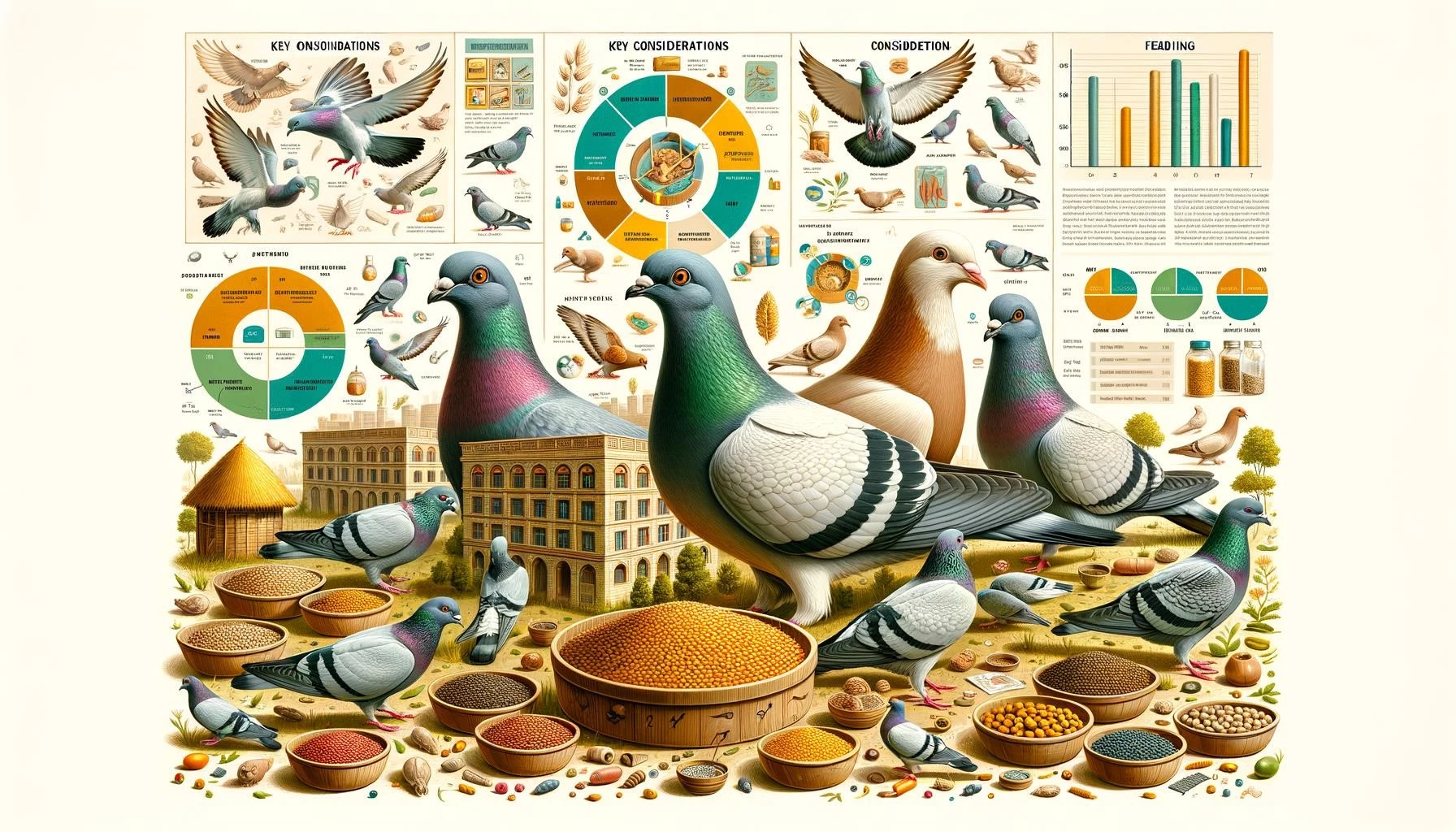Flock management plays a crucial role in the success of pigeon breeding. Whether you are breeding pigeons for racing, show purposes, or meat production, proper flock management is essential to maintain the health and productivity of your flock. This article will explore key aspects of flock management in pigeon breeding, including nest box design, parasite control, disease prevention, and breeding practices.
Key Takeaways
- Well-designed nest boxes provide a clean and comfortable living environment for pigeons.
- Parasite control is essential for maintaining a healthy flock.
- Prompt treatment of illnesses or injuries is crucial to prevent the spread of diseases within the flock.
- Selective breeding and proper pairing of pigeons help achieve desired traits in their offspring.
- Regular exercise and proper nutrition contribute to the overall health and fitness of the flock.
Nest Box Design for Pigeon Breeding
Well-designed nest boxes are an important aspect of flock management in pigeon breeding. They provide a comfortable and safe space for pigeons to breed and raise their young. Here are some key considerations for nest box design:
- Cleanliness and drainage: The nest boxes should be made of materials that are easy to clean and disinfect. Proper drainage is essential to prevent the accumulation of moisture, which can lead to fungal and bacterial infections.
- Size and ventilation: The nest boxes should be spacious enough to accommodate the pigeons comfortably. They should also have adequate ventilation to ensure fresh air circulation.
- Accessibility: The nest boxes should have a removable front panel or a hinged roof for easy access during cleaning and inspection.
- Nesting material: Provide suitable nesting material such as straw or grass for the pigeons to build their nests.
Parasite Control in Pigeon Flocks
Controlling parasites is crucial for maintaining the health and well-being of your pigeon flock. Parasites such as mites, lice, and worms can cause various health issues and reduce the overall productivity of the flock. Here are some strategies for effective parasite control:
- Regular inspection: Regularly inspect your pigeons for signs of parasites, such as feather loss, skin irritations, or unusual behavior. Early detection can help prevent the spread of parasites to the entire flock.
- Cleaning and disinfection: Clean and disinfect the nest boxes, perches, and other areas where the pigeons spend their time. Use appropriate disinfectants to eliminate parasites and their eggs.
- Medication: If you notice a parasite infestation, consult a veterinarian for appropriate medications or treatments. Follow the recommended dosage and treatment frequency to ensure effective parasite control.
- Preventive measures: Implement preventive measures such as maintaining proper hygiene, providing clean drinking water, and keeping the loft and surrounding areas clean and free from debris.
Disease Prevention and Treatment
Preventing and managing diseases is crucial for maintaining a healthy pigeon flock. Diseases can quickly spread among the birds, leading to significant losses. Here are some important measures for disease prevention and treatment:
- Regular health checks: Regularly monitor the overall health of your pigeons. Look for signs of illness such as loss of appetite, weight loss, lethargy, respiratory distress, or abnormal droppings. Promptly isolate and treat any sick birds to prevent the spread of disease.
- Vaccination: Consult a veterinarian to determine if vaccinations are recommended for your pigeon flock. Vaccinations can provide immunity against common diseases and help prevent outbreaks.
- Quarantine and biosecurity: When introducing new pigeons to the flock, quarantine them for a period of time to observe for any signs of illness. Implement biosecurity measures such as limiting access to the loft, using foot baths, and restricting contact with other birds to minimize the risk of disease transmission.
- Proper nutrition: Ensure that your pigeons receive a balanced diet to support their immune system and overall health. Provide a variety of grains, seeds, vegetables, and supplements as necessary.
By implementing proper flock management practices, you can ensure the health, productivity, and success of your pigeon breeding venture. Regular monitoring, preventative measures, and prompt action are key to maintaining a thriving and disease-free flock.








